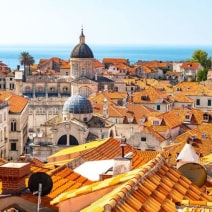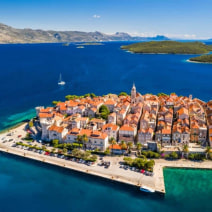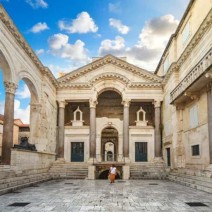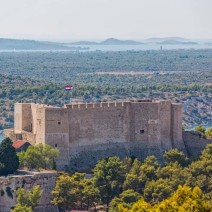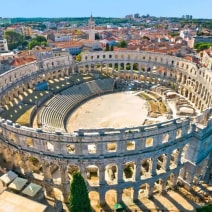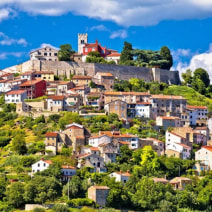Croatia Travel Guide
Croatia offers the perfect combination of natural beauty, rich culture, stunning coastline, Mediterranean climate, UNESCO World Heritage Sites and historical landmarks.
Croatia is a European country with a long coastline on the Adriatic Sea encompassing more than a thousand islands. The country has a population of 3 million, its capital and largest city is Zagreb, and the official language is Croatian.
Croatia is best known for its natural beauty and one of the highlights is without doubt its impressive coastline along the Adriatic Sea. The Istrian Coast to the north and the Dalmatian Coast to the south, offers an abundance of fascinating places to explore, including Rovinj, Split, Pula and Porec. Dubrovnik, often referred to as the “Pearl of the Adriatic” is a wonderful choice for city dwellers with its stunning medieval architecture, spectacular views, chic boutiques and stylish bars.
We've outlined some general information that may be helpful to you when planning your next holiday to Croatia.

Time Zone & Currency
Croatia is 1 hour ahead of Greenwich Mean Time (GMT) throughout the year. The currency used is the EURO.

Weather In Croatia
The Croatian climate is characterised by warm and dry summers and mild winters.

Reading For Your Trip To Croatia
April’s Fools Day by Josip Novakovich
The Sound of Blue by Holly Payne
Interception by Nathan Meyer
Best time to go to Croatia
Croatia has a Mediterranean climate and gets very hot in the summer. We believe the best time to visit Croatia is either Spring (April to June) or in the Autumn (September to November) when it's less crowded and the weather is cooler.
Top Tourist Attractions In Croatia
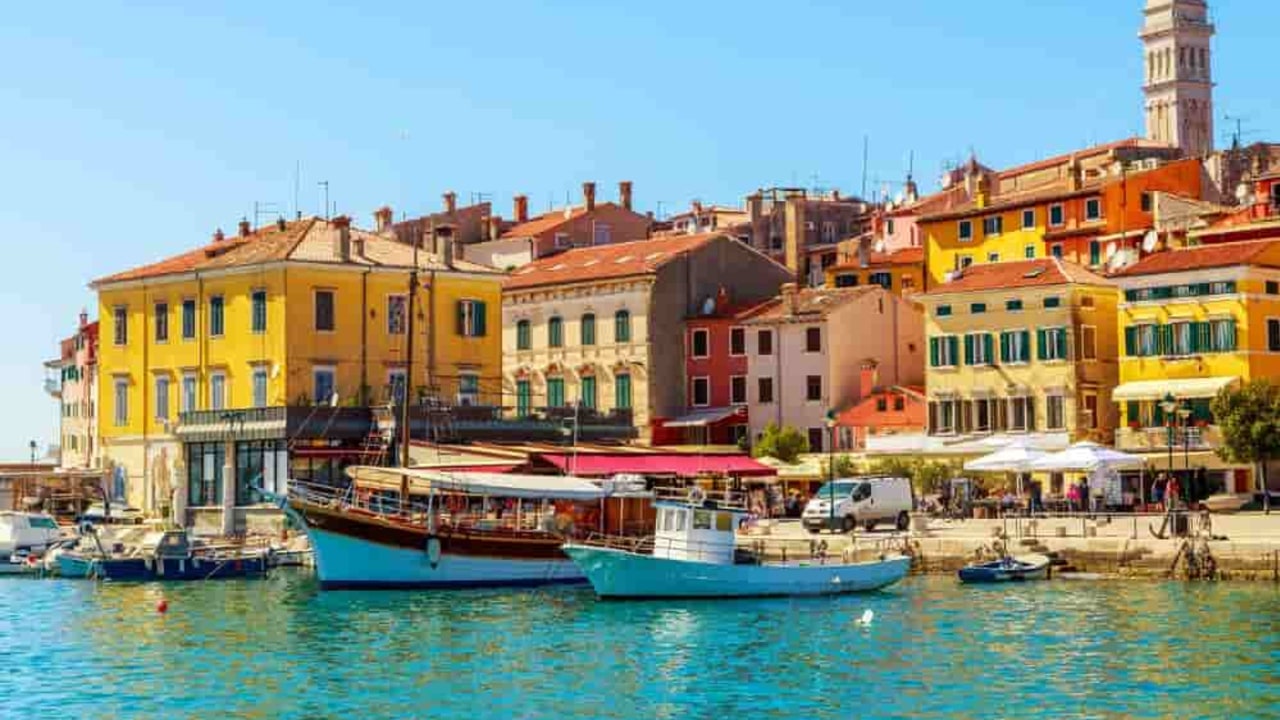
10 things to do in Croatia
Croatia boasts remarkable coasts, translucent turquoise waters, rugged mountain terrains, idyllic towns and a superb climate; this stunning little country is a must-see.

Virtual Tour Of Croatia
This virtual tour will help you discover the best of our holidays to Croatia.
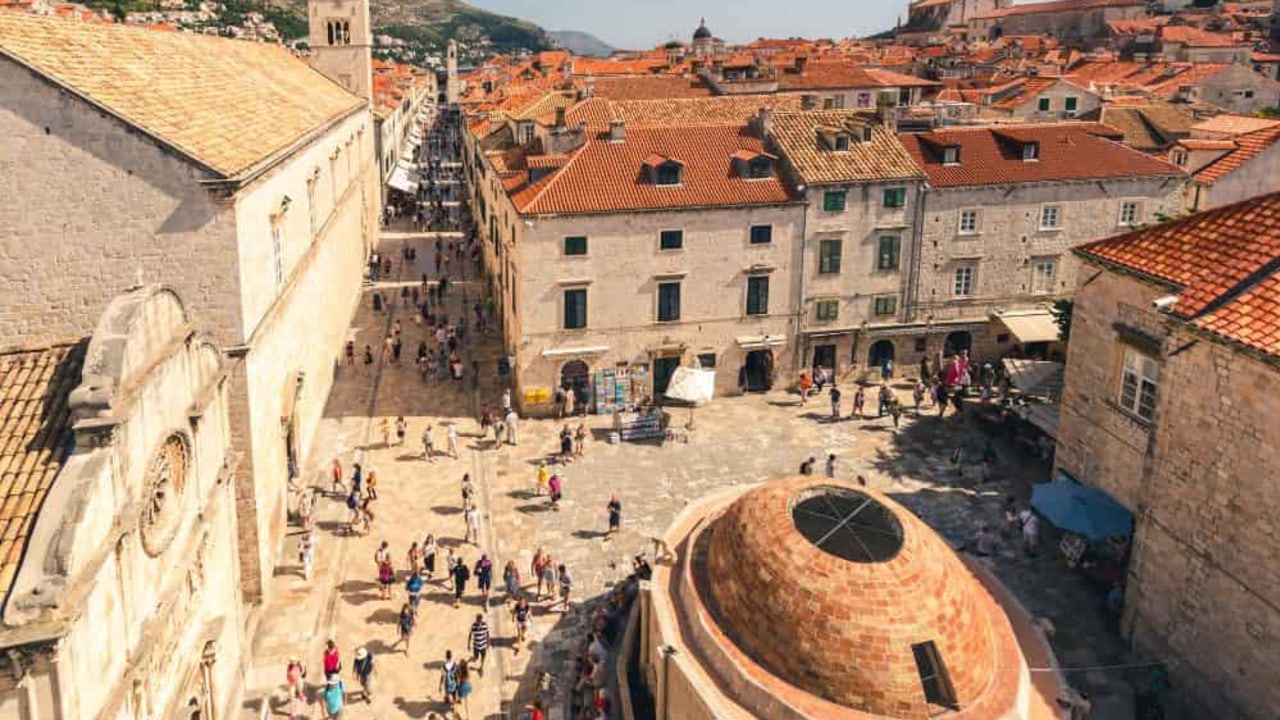
10 Incredible things to do in Dubrovnik
George Bernard Shaw said "those who seek paradise on Earth should come to Dubrovnik" and Lord Byron referred to it as the 'Pearl of the Adriatic.' It's one of the beautiful cities you are ever likely to visit.
Food and drink in Croatia
Croatian cuisine is largely based on local, seasonal produce, with hearty meat dishes and grilled fish and seafood, accompanied by vegetables and cooked with fruity olive oil and aromatic herbs. Foraged mišanca (wild vegetables) can be an ingredient in salads, omelettes, soups and pancakes, or served with pasta or in stews. Pršut, Croatia’s tasty air dried ham, is often complemented by slices of sheep’s cheese. Black squid ink risotto, a Dubrovnik speciality, is another mouth-watering favourite, while Istria is known for its truffles. Croatia also has a coffee culture to rival that of its near neighbour, Italy.
Croatia Travel Guide FAQs
Can you give a brief history of Croatia?
Throughout history, modern-day Croatia has been under the rule of various empires and dynasties, including the Romans; there is still evidence of the ancient Roman times such as the amphitheatre in Pula and Diocletian's Palace in Split. It was under the control of the Ottomans, Venetians and the Habsburgs, later becoming part of the Austro-Hungarian Empire in the 19th century. After WW1 the country became part of the Kingdom of Yugoslavia and then after WW2 it became known as the Socialist Federal Republic of Yugoslavia, a communist regime led by President Tito until his death in 1980. Soon afterwards the country began to break up which resulted in a period of wars during the 1990s. Croatia officially became independent in 1991 and whilst the infamous war greatly affected tourism during this dark time, this little country has since emerged to become one of the top destinations in Europe.
Do I require a holiday visa to travel to Croatia?
All EU/EEA nationals must present their valid passport on arrival in Croatia. A visa is not required for EU passport holders. For information on visa requirements for non-EU citizens, we recommend you contact the Croatian embassy or consulate in your country of residence. UK citizens can find further information by visiting www.gov.co.uk
Is it safe to tour Croatia?
The places visited on your itinerary are generally safe and our guides will always keep an eye out for you. However, in any large city there can be opportunists and pickpockets. It is wise to be vigilant, especially at busy tourist attractions, and always take good care of your personal belongings. Make use of the safe at your hotel, and carry a photocopy of your passport when out and about. Always take extra care when using public transport.
Can I use my bank cards while holidaying in Croatia?
ATMs are widely available. Before you travel, we recommend you seek information from your bank regarding card validity and charges. If changing money in banks or exchange offices, it’s wise to check what rate and fees/commissions will apply.
What advice do you have for tipping in restaurants while in Croatia?
Gratuities are not widely expected; however that doesn’t mean they are not appreciated. In the more formal restaurants you could tip 10-15% if you are pleased with the service. In cafes and more casual establishments you can leave some coins from your change on the table, or round up your bill at your own discretion.
What kind of plugs / sockets are used in Croatia?
In Croatia the power sockets are of type F. These are the two prong outputs. The standard voltage is 230 V and the standard frequency is 50 Hz. To avoid any issues we always recommend travelling with a universal adapter as this will be able to work in any country you visit.
Is English widely spoken in Croatia?
Although standard Croatian is the official language, English is widely spoken, so you shouldn’t have any communication difficulties during your Croatia holiday!
Useful Links
- For up-to-date information regarding entry into Croatia please see: www.gov.uk
- Official Croatian Tourism Board: croatia.hr
